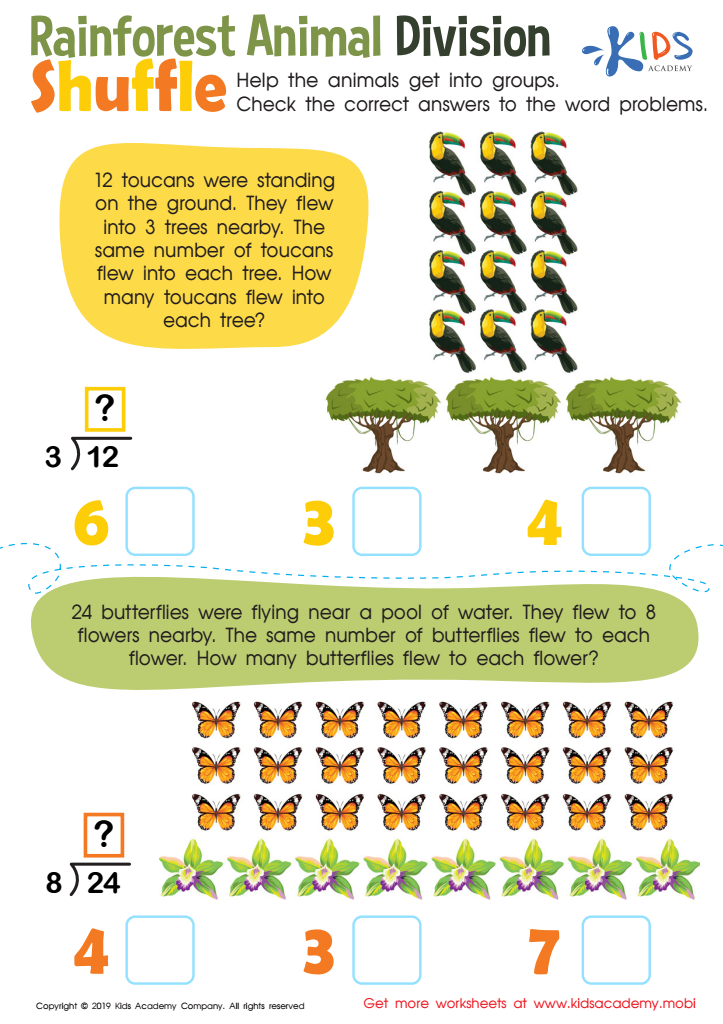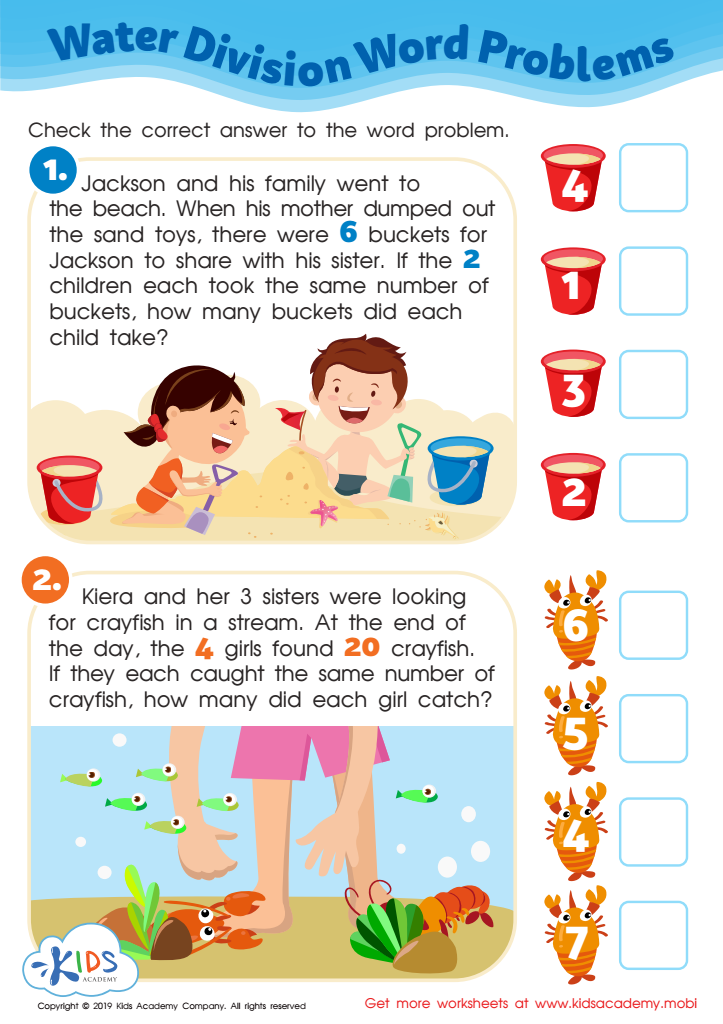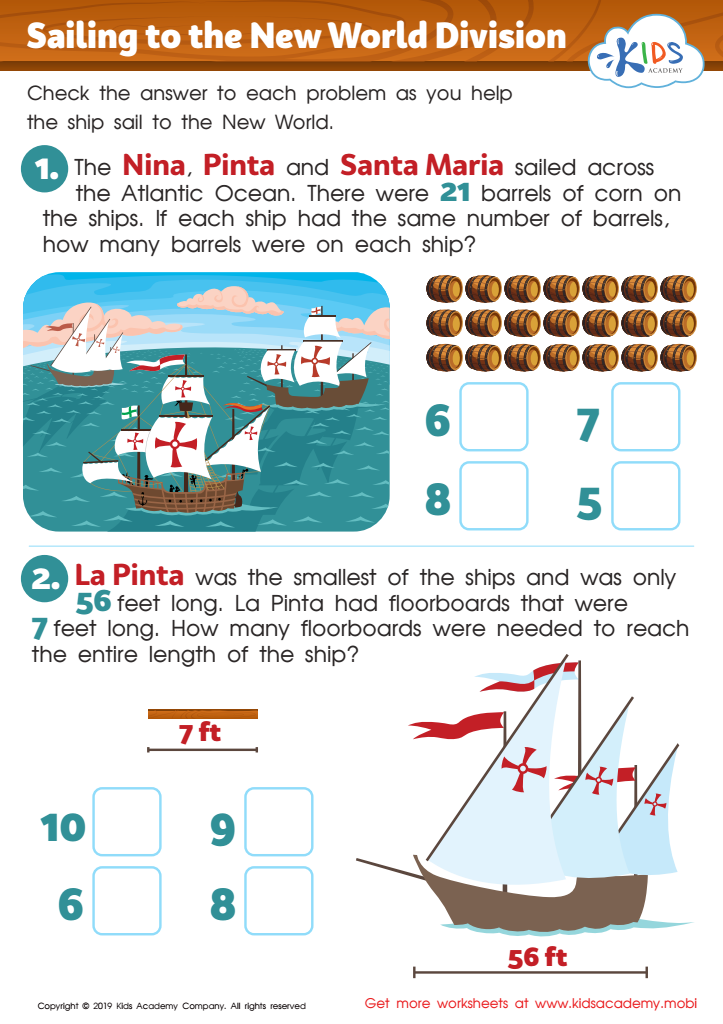Division practice Normal Word Problems Worksheets for Ages 3-6
4 filtered results
-
From - To
Introduce basic division skills to young learners with our "Division Practice: Normal Word Problems Worksheets for Ages 3-6". Designed specifically for early childhood education, these engaging worksheets help children understand division through simple, relatable word problems. Ideal for both classroom and home use, these printable activities incorporate fun and practical scenarios to make learning math accessible and enjoyable. Perfect for building foundational division skills, enhancing problem-solving abilities, and boosting confidence in math for preschoolers. Download today and watch your child's math skills grow!


Rainforest Animal Division Worksheet


Enrichment -2 Step Word Problems Worksheet


Water Division Word Problems Worksheet


Sailing to the New World Division Worksheet
While it may seem premature to focus on division practice for children aged 3-6, establishing early number sense and problem-solving skills is invaluable. At this foundational stage, the emphasis isn't necessarily on formal division, but rather on the concepts that underpin it, like sharing and grouping.
Introducing young children to division-related concepts helps develop critical thinking, supports cognitive development, and lays the groundwork for later mathematics learning. When children encounter sharing scenarios—like splitting toys evenly among friends or divvying up snacks—they begin to understand division intuitively in real-world contexts. This practice cultivates their ability to reason, make decisions, and understand fairness.
Parents and teachers who incorporate age-appropriate problem-solving activities that involve division concepts are fostering a child's mathematical language development. These activities encourage children to articulate their thought processes, ask questions, and explore different solutions.
Moreover, positive and playful early math experiences can boost children's confidence and interest in mathematics. This early engagement and enjoyment can help counter math anxiety and pave the way for more complex mathematical learning as they grow. By caring about and supporting division practice through engaging word problems, parents and teachers contribute significantly to a child’s overall cognitive and academic development.
 Assign to My Students
Assign to My Students
















